Filter by
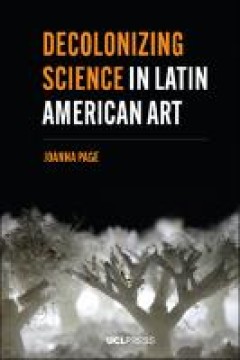
Decolonizing science in Latin American art
Projects that bring the ‘hard’ sciences into art are increasingly being exhibited in galleries and museums across the world. In a surge of publications on the subject, few focus on regions beyond Europe and the Anglophone world. Decolonizing Science in Latin American Art assembles a new corpus of art-science projects by Latin American artists, ranging from big-budget collaborations with NAS…
- Edition
- -
- ISBN/ISSN
- 9781787359765
- Collation
- xi, 288 p. : ill.
- Series Title
- -
- Call Number
- 709.8 PAG d

HUMAN CAPITAL VERSUS BASIC INCOME : ideology and models of anti-poverty progr…
Latin America underwent two major transformations during the 2000s: the widespread election of left-leaning presidents (the so-called left turn) and the diffusion of conditional cash transfer programs (CCTs)—innovative social programs that award regular stipends to poor families on the condition that their children attend school. Combining cross-national quantitative research covering the ent…
- Edition
- -
- ISBN/ISSN
- 9780472902774
- Collation
- xv, 288 p. : ill.
- Series Title
- -
- Call Number
- 130.63 BOR h
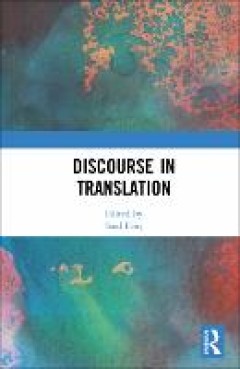
Discourse in translation
This book explores the discourse in and of translation within and across cultures and languages. From the macro aspects of translation as an inter- cultural project to actual analysis of textual ingredients that contribute to translation and interpreting as discourse, the ten chapters represent different explorations of ‘global’ theories of discourse and translation. Offering interrogations…
- Edition
- -
- ISBN/ISSN
- 9781315098791
- Collation
- xvii, 243 p.: ill.
- Series Title
- -
- Call Number
- 418.02 FAI d
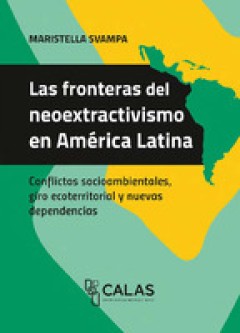
Las fronteras del neoextractivismo en américa latina : conflictos socioambie…
This book analyzes the progress of neoextractivism in Latin America through four fundamental nuclei: the first proposes the categories of neoextractivism and Consensus of Commodities as privileged windows to read the current crisis; the second analyzes the phases of neoextractivism from 2003 to the present; the third addresses the social resistance and the new political grammars from the concep…
- Edition
- -
- ISBN/ISSN
- 9783837645262
- Collation
- 144. p.
- Series Title
- -
- Call Number
- 303.6098. MAR l
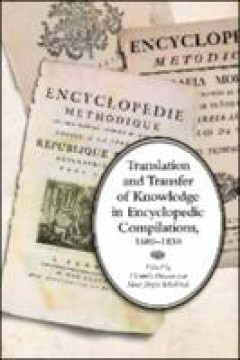
Translation and transfer of knowledge in encyclopedic compilations, 1680-1830
With a focus on the economic, social, and political impetus for producing monuments to knowledge, this volume recognizes the encyclopedic compilation as the quintessential tool of enlightenment knowledge transfer. From its modern origins in seventeenth-century France, encyclopedic compilations met the need for the dissemination of information in a more flexible format, one that eschewed the lim…
- Edition
- -
- ISBN/ISSN
- 9781487539269
- Collation
- vii, 374 p. : ill.
- Series Title
- -
- Call Number
- 030.9 DON t
Latin as the language of science and learning
This book investigates the role of the Latin language as a vehicle for science and learning from several angles. First, the question what was understood as ‘science’ through time and how it is named in different languages, especially the Classical ones, is approached. Criteria for what did pass as scientific are found that point to ‘science’ as a kind of Greek Denkstil based on pattern-…
- Edition
- -
- ISBN/ISSN
- 9783110745832
- Collation
- XIII, 646 p.
- Series Title
- Lingua Academica
- Call Number
- 470.9 ROU l
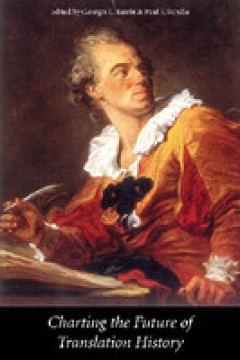
Charting the future of translation history
Over the last 30 years there has been a substantial increase in the study of the history of translation. Both well-known and lesser-known specialists in translation studies have worked tirelessly to give the history of translation its rightful place. Clearly, progress has been made, and the history of translation has become a viable independent research area.This book aims at claiming such auto…
- Edition
- -
- ISBN/ISSN
- 9780776606248
- Collation
- vii, 344 p.
- Series Title
- -
- Call Number
- 418.0209 BAS c
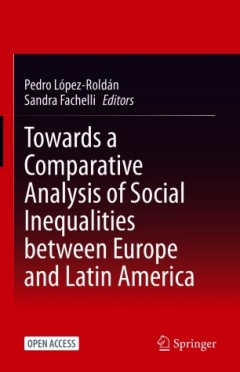
Towards a comparative analysis of social inequalities between Europe and Lati…
This open access volume identifies the common and specific aspects of social mechanisms that generate inequalities, through comparative analyses of different dimensions in which inequalities are expressed. It includes studies on social inequalities in 5 European and 5 Latin American countries, along 11 thematic axes: inequalities in the labour market and labour trajectories; asymmetries in the …
- Edition
- -
- ISBN/ISSN
- 9783030484422
- Collation
- xxiii, 480p. : ill.
- Series Title
- -
- Call Number
- 305.5 TOW t
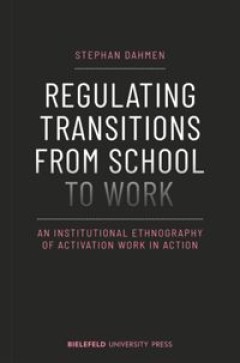
Regulating transitions from school to work : an institutional ethnography of …
How are activation programs for the young unemployed implemented? How do grassroot-level bureaucrats deal with competing rationalities and demands for action? Transition policies increasingly aim at promoting self-regulation and constructing employable subjects. Stephan Dahmen explores the practical regulation of biographical transitions in activation programs for the young unemployed by focusi…
- Edition
- -
- ISBN/ISSN
- 9783839457061
- Collation
- 310 p.
- Series Title
- -
- Call Number
- 370 DAH r
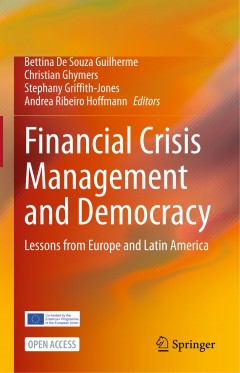
Financial crisis management and democracy : lessons from Europe and Latin Ame…
This open access book discusses financial crisis management and policy in Europe and Latin America, with a special focus on equity and democracy. Based on a three-year research project by the Jean Monnet Network, this volume takes an interdisciplinary, comparative approach, analyzing both the role and impact of the EU and regional organizations in Latin America on crisis management as well as t…
- Edition
- -
- ISBN/ISSN
- 9783030548957
- Collation
- ix, 382p. : ill.
- Series Title
- -
- Call Number
- 339 FIN f
 Computer Science, Information & General Works
Computer Science, Information & General Works  Philosophy & Psychology
Philosophy & Psychology  Religion
Religion  Social Sciences
Social Sciences  Language
Language  Pure Science
Pure Science  Applied Sciences
Applied Sciences  Art & Recreation
Art & Recreation  Literature
Literature  History & Geography
History & Geography